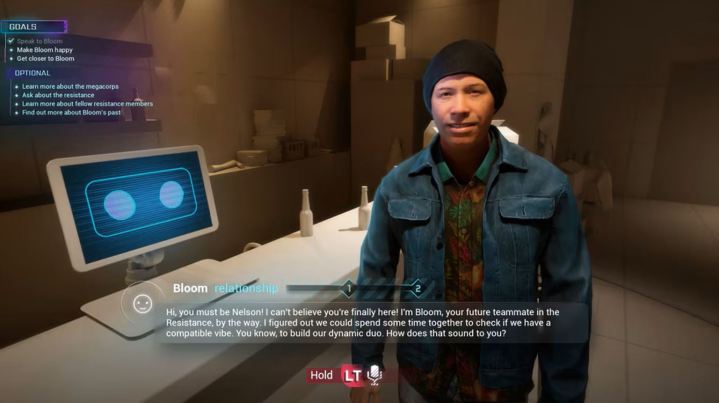
Ubisoft
At this week’s Game Developers Conference, Ubisoft presented a tantalizing glimpse into the possible AI-infused future for gamers. The company showcased a prototype at the event, which utilized Nvidia’s Ace microservice to generate fully voiced “smart NPCs” that players could engage with by speaking into a microphone. Despite drawing skepticism from many, including myself, the demo itself left a lasting impression upon us when we had the opportunity to experience it firsthand. I had a surprisingly coherent conversation with an environmentally conscious NPC about the ethics of eco-terrorism, a conversation that was made possible entirely through the power of AI.
It is one of the more compelling use cases we have witnessed in relation to this technology thus far, yet it has a surprising shortcoming that even Ubisoft is struggling to address: linguistic bias.
AI’s Hidden Bias
During the brief demo, I assumed the role of a space-traveling character who became involved in a resistance group’s fight against a megacorporation. The three-part demo saw me interacting with two distinct characters, both of which Ubisoft had meticulously crafted backstories for and fed into Nvidia’s Ace tool. Through chatting with the NPC, I gained insights into the sci-fi world and even planned a heist with creative thinking.
After completing my demo, I inquired of two Ubisoft workers involved in the project about any shortcomings in the tool that had frustrated them. Despite being highly impressed with the technology overall, it was evident from their occasional sighs that they had a long list of kinks that still needed to be worked out before the studio could fully embrace the technology. Their chief complaint was the inherent bias present in the English language, a human problem that AI is currently inadvertently inheriting.
Ubisoft
The demo experts pointed out to me two specific examples that had gone unnoticed by me during my playthrough. At one point, I asked an NPC to tell me about their least favorite member of their team. Despite the NPC expressing their love for all their crew members, they casually criticized a character named Iron, suggesting that he was a difficult person. The problem was that Iron was not supposed to be a male.
According to the demoists, the AI tool appears to associate the word “iron” with masculinity. As a result, it assumes that Iron, the character, is male. A similar situation arose when the NPC talked about a character named Bloom, who was described as a sweet and nurturing woman. In this case, “Bloom” was seemingly interpreted by the machine as a feminine term, thereby superimposing a motherly stereotype onto a male character. These examples may seem small, but they could potentially lead to more significant issues if left unchecked. For instance, how will generative AI dialogue handle issues related to race?
This is not a problem unique to Nvidia’s tool or AI in general. It reflects a fascinating aspect of language. Large language models like the one used here simply mirror the way humans speak based on the vast amount of data on which they are trained. This means that they are bound to inherit some less desirable habits from time to time, such as perpetuating gender stereotypes. While the NPCs in Ubisoft have detailed backstories crafted by writers, they are still learning from more general language learning datasets. AI companies like Convai, which helped power Nvidia’s Kairos demo at CES this year, admit that they do not have a clear understanding of the exact content that these datasets are trained on.
Ubisoft
This issue becomes even more complex when considering the implications for different languages. The developers I spoke to emphasized the importance of collaborating with internal DEI teams to help identify pain points and correct the writing generated by the AI characters. Although I was impressed by being able to engage in a lively philosophical debate with an AI NPC, it is clear that these machines still require a significant amount of human assistance to address the instincts that we have inadvertently instilled in them.
Ubisoft and Nvidia are not attempting to hide these shortcomings. The workers I spoke to during the demo stressed the significance of working with internal DEI teams to identify and address these issues. As much as I was impressed by the capabilities of the AI NPC, it is evident that these machines still need a great deal of human input to refine and correct the biases that have been inadvertently programmed into them.



